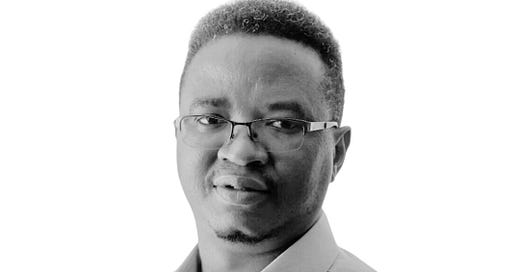Welcome to “Global Witness, Globally Reimagined.” You get a glimpse here of the kind of work that I do both at Church Mission Society and Missio Africanus where I help students of all levels (from unaccredited courses to PhD) explore the theological (and missiological) implications of the rise of World Christianity. In the newsletter, I focus on the subject of global witness in the twenty-first-century context. Every Thursday, I share a thought that has spoken to me in the week, one or two resources that I trust will be helpful to you, and three exciting quotes about mission to give you something to think about as you go through your day. I pray one of these will energise you.
I had to take an unexpected break from the newsletter for the past three weeks—thanks to all who emailed to see if there was a problem. Everything has now been cleared and as such, I hope to continue the conversations we have been having on this newsletter without any strange breaks this year. I am thankful to God that it has been two full years of Global Witness Globally Imagined newsletter. What started as a three-month, one-issue project has grown to speak to numerous people in many countries around the world. Similarly, I am deeply grateful to all who have subscribed to the newsletter along the way. I am especially thankful to many of you who have shared the newsletter in their networks since. Some have been in the habit of doing this every week since I published the first one in January 2023. My community in Malawi has a saying, “mbuto ya kalulu inakula n’tazaonani” which literally means “a rabbit’s footpath grew big because of the many people who came to see it” — something like “a single bracelet does not jingle.” Thank you all so much. It has taken an entire village of us to make this newsletter.
In this third year of the newsletter, I will do a few things differently.
First, I will send the newsletter twice a month—once every two weeks—instead of once every week, as I have tried to do for the past two years. Of those two, one is for all subscribers, while the other is for paid subscribers. (Paid subscribers get both newsletters, with the ones sent to their list being long-form and thematic and, therefore, substantially richer).
Second, there will be an intentional shift to try and write for/(to?) the “church” and not the academy (people researching and teaching mission) or the mission agencies (organisations sending missionaries to other parts of the world). The chasms I see in the ways we talk about this thing called ‘mission’ between the academy, mission agencies, and the church (especially here in the West, though they have been exported around the world) strike me as deeply unhelpful. I tried to raise awareness about this when I led a mission network organisation a few years ago but, unfortunately, it is too deeply embedded in our theological foundations — mission belongs to mission agencies; churches provide the personnel and the finances, but they do not need to know a lot about mission. The gap between mission agencies and the academy is even more worrisome. For a time, I thought that the world of mission agencies is intentionally anti-intellectual — mission education seems to be only for the training of missionaries for their practical work out there, leaders of mission agencies often tend to be very underread and under-informed on issues of current interest in the missiological academy. A great deal of what is going on in academic missiology has little bearing on what mission agencies do on the mission field.
For all these reasons, I make a strategic choice to try, as much as possible, to speak to the church.
Finally, I will send the newsletters on Tuesdays and not on Thursdays as I have always done. The first one for this year will be an all-subcriber newsletter coming next week.
Thank you.
Let me leave you with one quote that has been on my mind this week:
[…] Jesus Christ is the Saviour, Victor, and Liberator, and we humans are minor liberators engaged in securing provisional and relative yet joyful victories over our individual and socio-cultural-religious-political and economic sins such as terrorism, violence, wars, violence against women and children, economic exploitation, racism, gender inequalities, sexism, and political oppression. In Matthew 25:31-46, Jesus comes to us in those who are hungry, homeless, sick, and imprisoned. Basic human needs are listed here – food, clothing, shelter, health care, and, by implication, the basic political need for human dignity and integrity. — Paul John Isaak, “Missiological Framework in Africa: The Missional African Church and Its Missionary Praxis” International Review of Mission, vol. 108, iss. 2, (2019), p. 346.




Thank you so much, Dr Harvey for your consistent thoughts towards bringing something new to the table to enlighten our minds and prepare us for the ongoing happenings around missions.
We're grateful and ever-ready to receive and learn from your in-depth knowledge and understanding concerning the matters raised in your submission.
We pray for God's grace to sufficiently make provisions for this special assignment you've been endorsed to reveal to many across the globe.
https://christianchronicle.org/blessing-immigrants-in-new-england/